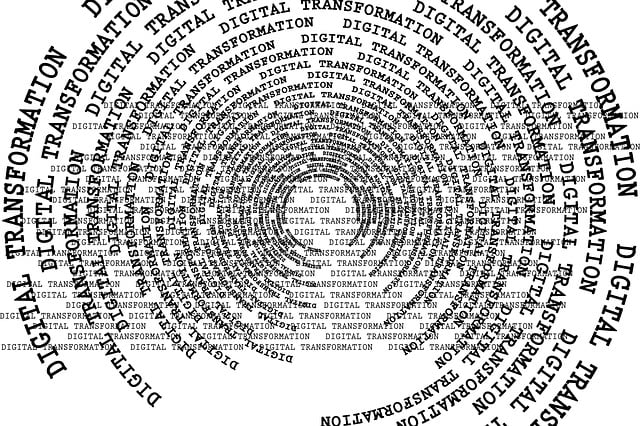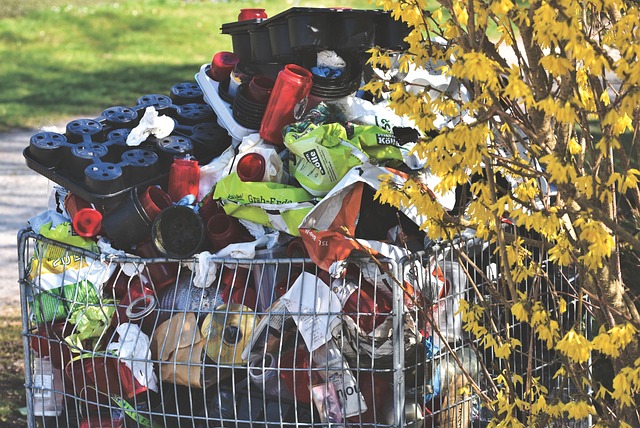New York City's rapid technological growth generates significant electronic waste (e-waste). Proper IT asset disposal in Boston, MA, is crucial for minimizing environmental harm and recovering valuable materials. Massachusetts regulations guide responsible e-scrap handling, while local experts develop strategies like collection events and partnerships with certified recycling companies. Secure data erasure and responsible recycling practices by asset disposal firms enable New Yorkers to contribute to environmental protection and a circular economy. Strict regulations and advanced technologies are shaping the future of efficient and sustainable e-waste management in New York and beyond.
In New York City, the rapid growth of technology has led to a corresponding surge in electronic waste (e-waste). This article delves into the intricate world of e-waste management in NYC, exploring its various facets. From understanding the nature of e-waste and its impact on the environment to examining current practices and sustainable solutions like IT asset disposal, we provide insights for businesses and residents. Additionally, we look at future trends shaping e-waste recycling and disposal in Boston and beyond.
- Understanding Electronic Waste (E-Waste) in New York City
- The Impact of Improper E-Waste Disposal
- IT Asset Disposal: A Sustainable Approach
- New York's Current E-Waste Management Practices
- Best Practices for Businesses and Residents
- Future Trends in E-Waste Recycling and Disposal
Understanding Electronic Waste (E-Waste) in New York City

In New York City, electronic waste, or e-waste, is a growing concern due to the rapid pace of technological advancement and the frequent replacement of electronic devices. E-waste includes discarded computers, smartphones, televisions, and other electronics that no longer function or are unwanted. Understanding the scope and impact of this issue is crucial for effective management strategies. New York City generates significant amounts of e-waste, with various sources including consumer replacements, business upgrades, and end-of-life devices.
Proper IT asset disposal Boston NY methods are essential to mitigate environmental harm and ensure valuable materials are recovered. E-scrap handling regulations in Massachusetts guide the responsible recycling of e-waste, promoting sustainable practices among businesses and residents. The city’s e-waste management specialists in Massachusetts play a vital role in developing and implementing strategies that include collection events, drop-off locations, and partnerships with certified IT asset recycling Boston companies to streamline the e-scrap handling process and encourage proper disposal of electronic waste.
The Impact of Improper E-Waste Disposal

The improper disposal of electronic waste (e-waste) has far-reaching environmental and health consequences. New York, with its bustling metropolis, generates a significant amount of e-waste annually from households, businesses, and institutions. When e-waste is not managed responsibly, it often ends up in landfills or is illegally exported, leading to toxic substances leaching into the soil and groundwater. This poses risks to both human health and local ecosystems.
In Boston and across Massachusetts, there are numerous IT asset disposal services and computer recycling programs that promote sustainable e-waste management. Asset disposal consulting firms and IT equipment salvage companies play a crucial role in ensuring proper handling of electronic waste. They offer secure data erasure, responsible recycling, and efficient asset recovery solutions. By utilizing these services, New York residents and businesses can contribute to mitigating environmental damage, conserving natural resources, and fostering a circular economy.
IT Asset Disposal: A Sustainable Approach

In the realm of sustainable practices, IT asset disposal stands out as a crucial strategy for New York to embrace. As the state navigates the challenges posed by electronic waste (e-waste), implementing proper IT asset disposal methods in Boston and across NY is more than just an environmental responsibility—it’s a economic and social imperative. By focusing on responsible recycling and remanufacturing of old tech, businesses and individuals can contribute to the reduction of toxic substances leaching into soil and water.
NY state e-waste laws encourage computer recycling initiatives in NYC and throughout the state, setting guidelines for proper disposal of electronic devices. These regulations not only promote environmental stewardship but also foster innovation by creating opportunities for recycled materials to be repurposed into new technologies. Embracing IT asset disposal as a sustainable approach ensures that outdated tech doesn’t become a legacy of pollution but rather a stepping stone towards a greener, more responsible future.
New York's Current E-Waste Management Practices

New York, a bustling metropolis, faces significant challenges when it comes to electronic waste (e-waste) management. Despite efforts to keep up with the growing volume of discarded electronics, the current practices are far from ideal. Many residents and businesses in NYC still rely on outdated methods for disposing of IT assets, such as e-waste being sent to landfills or illegally dumped. This not only poses environmental risks but also threatens data security, as sensitive information can be recovered from old devices.
Fortunately, there are dedicated computer hardware destruction MA companies offering safe data sanitization methods and IT asset disposal Boston NY services. These professionals ensure that all electronic waste is handled properly, including the secure destruction of hard drives and other storage media to prevent data breaches. With strict regulations in place, like those enforced by NYC’s data destruction companies, New York is taking steps towards a more sustainable and responsible e-waste management future.
Best Practices for Businesses and Residents

In New York, businesses and residents play a crucial role in responsible electronic waste management. For businesses, implementing robust IT asset disposal Boston NY practices is essential. This includes adhering to the IT equipment decommissioning guidelines, ensuring all hardware and software are properly recycled or repurposed, and securely erasing sensitive data before discarding devices. By integrating these habits, businesses can minimize environmental impact, comply with regulations, and contribute to a sustainable technological byproduct recycling ecosystem.
Residents can also participate in this effort through local computer recycling programs Massachusetts. Proper disposal of old computers and electronics prevents hazardous materials from entering the environment and ensures valuable resources are recovered for reuse. This not only reduces e-waste but fosters a circular economy where technological advancements thrive while minimizing environmental strain.
Future Trends in E-Waste Recycling and Disposal

The future of e-waste management in New York and beyond looks promising with emerging trends focusing on more efficient recycling and disposal methods. One notable trend is the integration of advanced technologies, such as artificial intelligence (AI) and robotics, to streamline the recycling process. These innovations enable faster sorting and categorization of electronic waste (e-waste), ensuring that valuable materials are recovered effectively. For instance, AI-powered systems can identify different types of metal, plastic, and glass in e-waste, enhancing the overall recycling efficiency.
Additionally, there is a growing emphasis on sustainable practices, with many cities and organizations adopting circular economy models for IT asset disposal in Boston and New York. This approach encourages the reuse and repurposing of electronic components, reducing the need for virgin resources. Secure data destruction services in Massachusetts are also becoming more prevalent as businesses recognize the importance of protecting sensitive information during IT junk recycling programs. These e-waste management specialists employ rigorous protocols to ensure that all data is securely erased or destroyed before recycling, providing peace of mind for organizations across the state.
In conclusion, effective electronic waste management is paramount for New York City’s sustainability and environmental health. By understanding the impact of e-waste, adopting sustainable practices like IT asset disposal, and implementing best strategies for businesses and residents, NYC can significantly reduce its ecological footprint. As we look to the future, embracing emerging trends in e-waste recycling and disposal will be crucial in transforming this urban challenge into an opportunity for a greener tomorrow.














